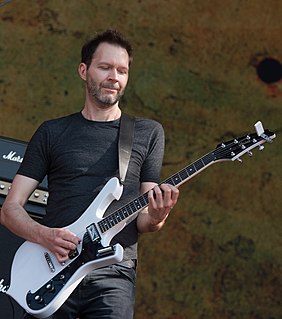A Quote by Karin Dreijer Andersson
Music and art is about ideas, I think. Especially music. You have the freedom to work with your ideas and your dreams and your fantasies, which is quite hard to do in many other places.
Related Quotes
If you hear a good idea, capture it; write it down. Don't trust your memory. Then on a cold wintry evening, go back through your journal, the ideas that changed your life, the ideas that saved your marriage, the ideas that bailed you out of bankruptcy, the ideas that helped you become successful, the ideas that made you millions. What a good review-going back over the collection of ideas that you gathered over the years. So be a collector of good ideas for your business, for your relationships, for your future.
Never put a lid on God. You can give God a thimble and ask for a quart. It won't work. Your plans, your projects, your dreams have to always be bigger than you, so God has room to operate. I want you to get good ideas, crazy ideas, extravagant ideas. Nothing is too much for The Lord to do - accent on 'The Lord'.
The having of the ideas is quite otherworldly. And then the making of the art itself is quite scientific. It's a combination. L Doing figurative work or taking pictures, and looking at how light actually reflects and refracts on bodies, or how your perception of something changes based on distance. But I think the getting of the ideas, and having that space to just have the ideas, is otherworldly, and requires a clear mind.
What counts, in the long run, is not what you read; it is what you sift through your own mind; it is the ideas and impressions that are aroused in you by your reading. It is the ideas stirred in your own mind, the ideas which are a reflection of your own thinking, which make you an interesting person
I've learned mainly by reading myself. So I don't think I have any original ideas. Certainly, I talk about reading Graham. I've read Phil Fisher. So I've gotten a lot of my ideas from reading. You can learn a lot from other people. In fact, I think if you learn basically from other people, you don't have to get too many new ideas on your own. You can just apply the best of what you see.
When you're working with other artists, it's often a mix of your ideas with somebody else's, which can be extremely fruitful. But then it's also interesting to present the completely undiluted vision of what I imagine music could be. I care about both my own music and collaboration equally, and I pretty much split my time equally, as well.




































